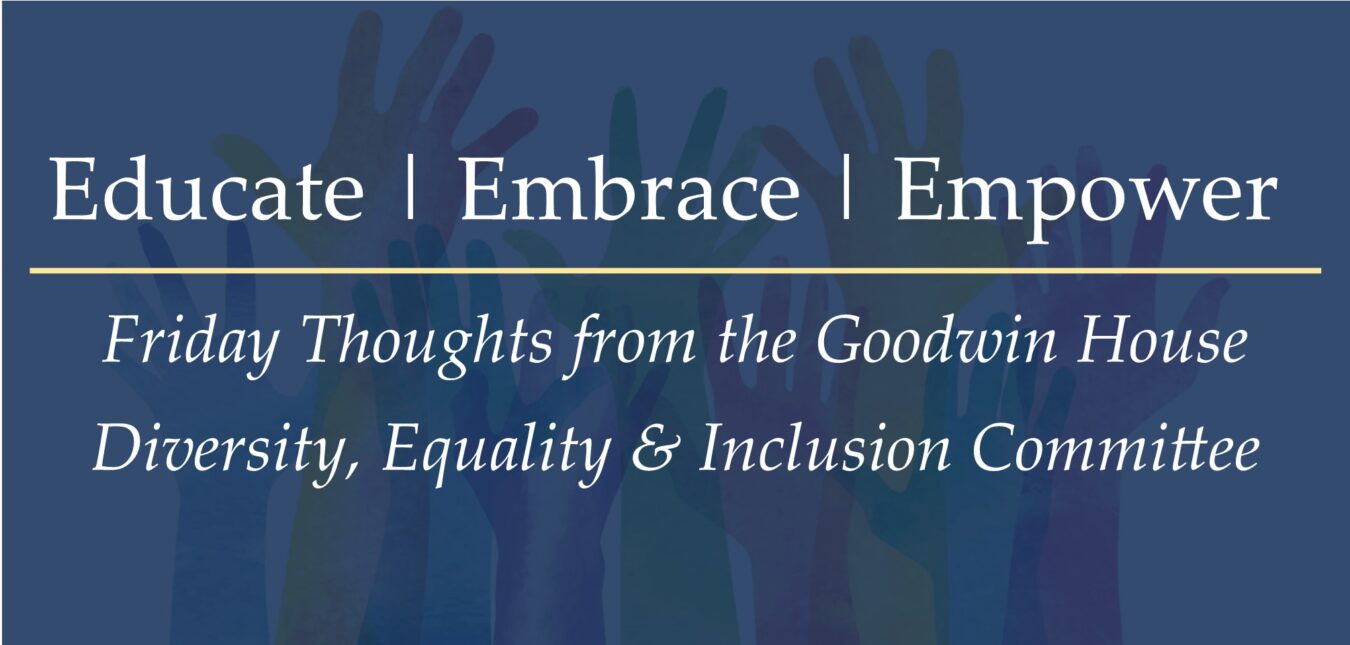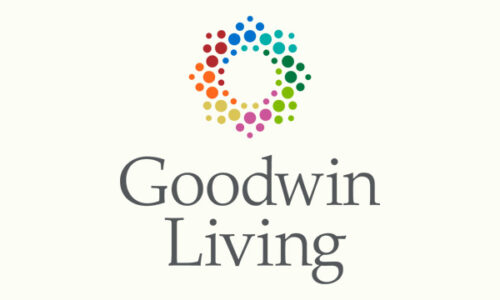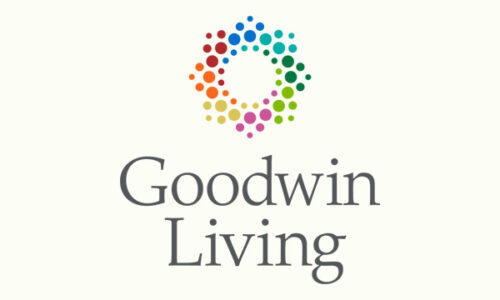Diversity Equity Inclusion & Belonging
May 25, 2024
Countering Ageism
by Theresa Mandela, StrongerMemory Coordinator
In May we celebrate Older Americans Month, and around the country we want to ensure that older adults live enriching, healthy lives.
Unfortunately, ageism is getting in the way of that goal. Ageism is defined by the World Health Organization as the stereotyping, prejudice and discrimination towards people on the basis of age. It’s patently unfair to be treated unjustly or have a diminished sense of worth because of one’s age. After all, every person in the world will someday be an older adult!
As the Goodwin Living StrongerMemory Outreach Coordinator and a DEI Committee member, I’m especially concerned with brain health and living life fully as we age. Interestingly, Becca Levy – a Yale epidemiology and psychology professor and author of Breaking The Age Code – found a strong connection between our beliefs about aging and how those beliefs affect how long and how well one lives. It turns out that internalized messages about aging influence a person’s health and wellbeing, as numerous studies confirm.
In 1968, geriatric psychiatrist Dr. Robert Butler coined the term “ageism” during an interview with the then-fledgling Washington Post reporter Carl Bernstein. Reflecting on community resistance to a program to establish retirement housing for older people of moderate income in nearby Chevy Chase, Maryland, Butler likened the issue to sexism or racism. He turned his outrage into a public awareness campaign and authored several books, including “Why Survive? Being Old in America.” Often dismissed as being harmless, ageism can have a surprisingly detrimental effect on the mental and cognitive health of older adults – damaging to individuals and society as a whole. Ageism shapes the way we think about ourselves and others starting from an early age. Unfavorable comments about aging are not simply harmless jokes or poking fun; they can lead to discrimination and perpetuate negative stereotypes. A National Poll On Healthy Aging conducted by the University of Michigan reported that “the more time we spend watching television, browsing the Internet or reading magazines, the more likely we are to experience everyday ageism, meaning negative — and incorrect — images of older people such as those depicting us as frail or dependent, or unable to use new tech devices or social media platforms.”
What does Ageism sound like?
“I’m having a senior moment.”
“These wrinkles and grey hair have got to go.”
“I’m too old to try that.”
“You look good for your age.”
“It’s time to put her/him out to pasture.”
“Those are just aches and pains from old age.”
“Sweetie, you don’t look a day over 29.”
When older adults buy into negative stereotypes about aging — such as believing they are more forgetful, slow, or incapable of learning new things — this can lead to a self-fulfilling prophecy. Believing ageist stereotypes can result in becoming discouraged and not challenging oneself mentally, which contributes to a decline in cognitive function.
Research has confirmed that the more threat individuals felt about aging and memory (called a “stereotype threat”), the worse was their performance on memory recall tests. It’s not just cognitive function that is affected by these negative ageist beliefs. Lab studies reveal that stereotype threats of feeling weak, feeble and frail can also lead to slower walking and weaker grip strength for older adults. That can ultimately lead to more falls and muscle wasting. Ageist beliefs, especially learned over a lifetime, can lead to a damaging “you are what you think you are” mindset. Fortunately, psychologists like Becca Levy and Sarah J. Barber are working to reduce the negative stereotypes of ageism. Levy uses a factchecking approach for public awareness, highlighting the many strengths that come with aging. For instance, Levy looked into the stereotype that people become less creative as they get older. In her research, Levy found a host of examples of artists and musicians who became more creative and more generative later in life.
Levy dispels the stereotype that all types of cognitive ability inevitably worsen with age. “It’s true that some cognitive skills, such as reaction times, tend to slow a bit over time. But other functions remain robust and even improve.” One study of older adults, for instance, showed they were better than middle-aged adults at orienting their attention and ignoring distractions.
Manfred Diehl, PhD, a professor of human development and family studies, has delved into research that supports the idea that the negative stereotypes that fuel ageism often get aging all wrong: “When we say aging isn’t all negative, it’s not that we are putting on rose-colored lenses. This is based on rigorous science,” he said.
Ultimately, there’s a need for society as a whole to end “structural ageism” so that we remove the barriers and “address the challenges that hinder older populations from living their later lives in meaningful, productive ways,” according to Paul Irving, Chair of the Milken Institute Center for the Future of Aging. This would mean eliminating negative age-related stereotypes in multiple areas, such as medicine, mental health care, governmental systems, education, the workplace, advertising, popular culture, media and science.
You may be wondering, what can we as individuals and small groups do to counter ageism?
Led by the Gerontological Society of America, the National Center to Reframe Aging offers ideas to counter ageism by changing how we talk about aging:
1. Call out ageism when you see it or hear it
2. Learn about the public’s understanding of aging at www.regramingaging.org
3. Follow tips on verbiage and messaging to advance positive themes around aging (say older adult or older person rather than senior citizen or elder)
There are other things we can do in our everyday lives to turn our culture into one that highlights aging in a more positive light:
1. Recognize and discourage “elderspeak” in which the speaker uses overly personal, endearing terms when encountering older persons (e.g. “honey” or “dearie”) or babyish talk when addressing an older adult
2. Speak up and stop others from “talking around” someone, which is the assumption that an older adult will not be able to understand so they address the adult children or caregiver instead
3. Focus on communicating to the person’s strengths rather than attempting to work around their weaknesses, whether they’re real or perceived 4. Work on rooting out disparaging comments meant in jest, and steer clear of birthday cards that send negative messages related to aging
5. Promote intergenerational experiences in our community
6. Recognize the rich skills, talents and worth of every person, regardless of their age, and treat each person respectfully with attention to individual differences, cultural and ethnic diversity
Ageism is harmful to individuals, our workforce and our world. Working together to change perceptions about aging helps us grow a community where we can all age, thrive and contribute together. Those who have positive attitudes about aging live longer, have better memory function and recover more easily from illnesses. Let’s take steps to defeat ageism and follow Desmond Tutu’s philosophy: “Do your little bit of good where you are; it’s those little bits of good put together that overwhelm the world.
_______________________________________________________
Goodwin Living DEI Committee: Statement of Purpose: Educate, Embrace, and Empower team members, residents, members* and all served by Goodwin Living to support Diversity, Equality and Inclusion.
Goodwin Living DEI Committee Desired Outcome: The Diversity, Equality, and Inclusion Committee (DEI) will seek open and honest communication and collaboration that will inform and celebrate the age, culture, ethnicity and sexual orientation of team members, residents, members* and all served by Goodwin Living without bias. *Members include Priority Club members and Goodwin Living At Home.
Questions or comments? Please contact us DEI@GoodwinLiving.org.





